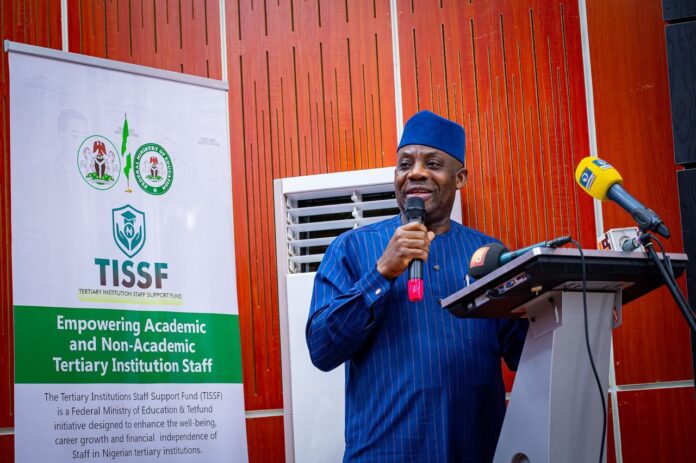In its bid to make Nigerian learners “future-ready,” the Federal Government has launched what it has described as a future-ready curriculum for all levels of education.
This was disclosed in a statement by the Press Director of the Federal Ministry of Education, Folasade Boriowo, on Sunday.
Boriowo, who quoted the Minister of State for Education, Prof. Suwaiba Ahmad, as saying the curriculum followed a comprehensive review process, said the curriculum aims to produce a stronger, more future-focused learning experience for students.
According to the minister, the review was carried out in collaboration with key education stakeholders, including the Nigerian Educational Research and Development Council, the Universal Basic Education Commission, the National Senior Secondary Education Commission and the National Board for Technical Education.
The new framework is designed to reduce content overload, improve learning outcomes, and ensure Nigerian students are equipped with skills relevant to today’s global demands.
Ahmad said the exercise went beyond merely trimming subjects, stressing it focused on improving content to promote deeper learning and reduce overload for pupils and students.
“Under the revised structure, pupils in Primary 1–3 will study a minimum of nine and a maximum of 10 subjects; pupils in Primary 4–6 will take 10 to 12 subjects. Junior secondary students may offer 12 to 14 subjects, senior secondary students will take eight to nine subjects, and technical schools will offer nine to 11 subjects.
“The revised curricula will reduce content overload and create more learning time for students,” Ahmad said, adding that the changes reflect the government’s commitment to delivering quality, practical and relevant education in a rapidly changing world.
The Ministry of Education commended stakeholders for their role in the review anThe ministry did not give an exact date for rollout, but said the new curricula will be phased in with oversight from relevant agencies to guarantee effective adoption.d said implementation will be accompanied by strict monitoring to ensure a smooth transition across schools nationwide.
The ministry did not give an exact date for rollout, but said the new curricula will be phased in with oversight from relevant agencies to guarantee effective adoption.

